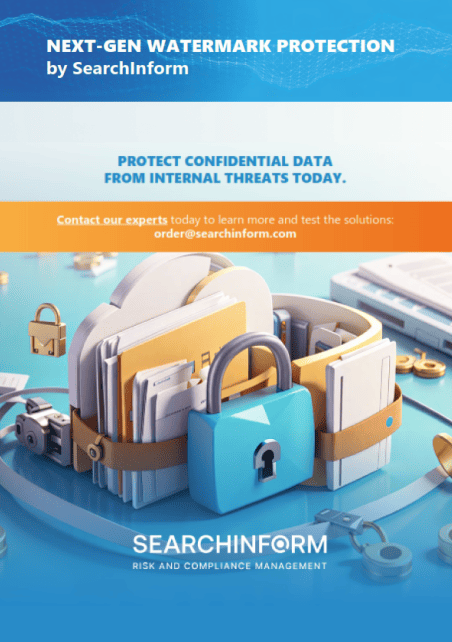HIPAA Omnibus Rule: Comprehensive Guide
Introduction
The HIPAA Omnibus Rule, formally known as the "HIPAA Omnibus Final Rule," is a set of regulations that expanded and strengthened the Health Insurance Portability and Accountability Act (HIPAA) of 1996. This rule was enacted by the U.S. Department of Health and Human Services (HHS) and went into effect on March 26, 2013. The Omnibus Rule introduced several significant changes to HIPAA regulations, particularly regarding privacy, security, enforcement, and breach notification requirements.
HIPAA Omnibus Rule aimed to improve the protection of individuals' health information in an increasingly digital healthcare environment, where the use and exchange of electronic health records have become commonplace. It reflects the growing importance of safeguarding sensitive health data and holding both covered entities and their business associates accountable for maintaining the privacy and security of PHI. Compliance with the Omnibus Rule is essential for healthcare organizations to avoid costly penalties and protect patient trust and confidentiality.
Key Components of the HIPAA Omnibus Rule
The HIPAA Omnibus Rule encompasses several key components, each aimed at enhancing the privacy, security, and accountability of protected health information (PHI) within the healthcare ecosystem:
Expansion of Scope: The Omnibus Rule extends HIPAA's requirements beyond covered entities to include their business associates, such as contractors, subcontractors, and vendors who handle PHI on their behalf. This expansion ensures that all entities involved in handling PHI are subject to the same privacy and security standards.
Strengthened Privacy Protections: The rule enhances individuals' rights regarding their PHI by requiring covered entities to provide patients with access to their health information in electronic format upon request. It also mandates that covered entities obtain authorization from patients before using their PHI for marketing purposes and prohibits the sale of PHI without explicit authorization.
Heightened Security Requirements: Under the Omnibus Rule, covered entities and business associates must implement robust security measures to protect electronic PHI (ePHI) from unauthorized access, alteration, or destruction. This includes conducting regular risk assessments, implementing encryption and access controls, and establishing contingency plans for responding to security incidents.
Breach Notification Standards: The rule establishes clear guidelines for determining when a breach of PHI requires notification to affected individuals, the Department of Health and Human Services (HHS), and, in certain cases, the media. Covered entities and business associates must conduct a risk assessment to determine the probability that PHI has been compromised and notify affected individuals and HHS promptly if a breach is confirmed.
Accountability and Enforcement: The Omnibus Rule enhances enforcement mechanisms and penalties for HIPAA violations, including both civil and criminal penalties for non-compliance. It also requires covered entities to enter into written agreements with their business associates, outlining each party's responsibilities for safeguarding PHI and ensuring compliance with HIPAA regulations.
Business Associate Agreements: Covered entities must enter into written agreements with their business associates that outline the permitted uses and disclosures of PHI, as well as the security safeguards that must be implemented to protect the information. These agreements help ensure that business associates understand their obligations under HIPAA and provide a framework for accountability in the event of a breach or violation.
Patient Rights and Access: The Omnibus Rule strengthens individuals' rights regarding access to their health information by requiring covered entities to provide patients with electronic copies of their PHI upon request. It also gives patients the right to request restrictions on certain uses or disclosures of their PHI, empowering them to control how their information is shared and used.
HIPAA Omnibus Rule comprises a comprehensive set of provisions designed to modernize and strengthen HIPAA regulations, enhance privacy and security protections for PHI, and promote accountability across the healthcare industry. Compliance with the rule is essential for covered entities, business associates, and other entities involved in handling PHI to ensure the confidentiality, integrity, and availability of individuals' health information.
Implications for Healthcare Organizations
The HIPAA Omnibus Rule carries significant implications for healthcare organizations, necessitating comprehensive changes in policies, procedures, and practices to ensure compliance and mitigate risks associated with handling protected health information (PHI).
First and foremost, healthcare organizations must expand their compliance efforts to encompass not only their internal operations but also the activities of their business associates. This entails establishing robust business associate agreements that delineate each party's responsibilities for safeguarding PHI and ensuring compliance with HIPAA regulations. Failure to do so could expose organizations to substantial penalties and reputational damage in the event of a breach or violation.
The Omnibus Rule mandates heightened security measures to protect electronic PHI (ePHI) from unauthorized access, disclosure, or alteration. Healthcare organizations must conduct regular risk assessments, implement encryption and access controls, and establish contingency plans for responding to security incidents. These measures are essential for safeguarding sensitive patient data and maintaining the trust and confidence of patients and stakeholders.
The rule also places greater emphasis on transparency and accountability in healthcare data management. Healthcare organizations must provide patients with greater access to their health information and respect their preferences regarding the use and disclosure of PHI. This requires investments in technology and processes to facilitate electronic access and empower patients to exercise their rights under HIPAA.
The Omnibus Rule underscores the importance of a culture of compliance within healthcare organizations. Training and education programs are crucial for ensuring that employees understand their obligations under HIPAA and are equipped to safeguard PHI effectively. Regular audits and monitoring mechanisms can help identify areas of non-compliance and enable organizations to take corrective action proactively.
Compliance with the HIPAA Omnibus Rule is not just a legal requirement but also a fundamental responsibility for healthcare organizations committed to protecting patient privacy and security. By implementing robust policies, procedures, and technologies, organizations can mitigate risks, enhance patient trust, and demonstrate their commitment to upholding the highest standards of data protection in an increasingly digital healthcare landscape.

Best Practices for Achieving Compliance
Achieving compliance with the HIPAA Omnibus Rule requires healthcare organizations to adopt a proactive approach to privacy and security management. Here are some best practices to help organizations navigate the complexities of HIPAA compliance effectively:
Conduct Comprehensive Risk Assessments: Regularly assess the risks to the confidentiality, integrity, and availability of protected health information (PHI) within your organization. Identify potential vulnerabilities and implement appropriate safeguards to mitigate these risks effectively.
Implement Robust Policies and Procedures: Develop and maintain comprehensive policies and procedures that address HIPAA requirements, including privacy, security, breach notification, and patient rights. Ensure that employees are trained on these policies and understand their obligations under HIPAA.
Secure Electronic Health Records (EHRs) and Systems: Implement strong access controls, encryption protocols, and authentication mechanisms to protect electronic PHI (ePHI) from unauthorized access or disclosure. Regularly update software and systems to address security vulnerabilities and ensure compliance with industry best practices.
Establish Business Associate Agreements (BAAs): Enter into written agreements with business associates that outline each party's responsibilities for safeguarding PHI and complying with HIPAA regulations. Monitor the performance of business associates and ensure that they meet the terms of the agreement.
Provide Ongoing Training and Education: Educate employees on HIPAA regulations, policies, and procedures through regular training sessions and awareness programs. Ensure that employees understand the importance of safeguarding PHI and the potential consequences of non-compliance.
Implement Incident Response and Breach Notification Plans: Develop and maintain incident response and breach notification plans to address security incidents promptly and effectively. Establish procedures for assessing and mitigating breaches of PHI and notify affected individuals, regulators, and other stakeholders as required by law.
Conduct Regular Audits and Monitoring: Implement auditing and monitoring mechanisms to track access to PHI and detect any unauthorized or suspicious activities. Conduct regular internal audits to assess compliance with HIPAA requirements and identify areas for improvement.
Maintain Documentation and Records: Keep thorough records of HIPAA compliance activities, including risk assessments, policies and procedures, training materials, incident reports, and audit findings. Documentation serves as evidence of compliance efforts and can help demonstrate due diligence in the event of an audit or investigation.
Stay Informed and Adapt to Changes: Keep abreast of updates to HIPAA regulations and industry best practices related to privacy and security in healthcare. Continuously evaluate and update your compliance program to address evolving threats and requirements effectively.
Engage Legal and Compliance Experts: Seek guidance from legal and compliance experts with experience in healthcare privacy and security to ensure that your organization's practices align with HIPAA regulations and other relevant laws.
By adopting these best practices and cultivating a culture of compliance within your organization, you can effectively navigate the complexities of HIPAA compliance and protect the privacy and security of patients' health information. Compliance is not just a legal obligation but also a critical component of maintaining trust and integrity in healthcare operations.
Advantages of SearchInform Solutions for HIPAA Omnibus Rule Compliance
SearchInform solutions offer several benefits that align with the requirements and objectives of the HIPAA Omnibus Rule, particularly in the context of healthcare data management and compliance. Here are some key benefits of SearchInform solutions for achieving compliance with the Omnibus Rule:
Comprehensive Data Protection: SearchInform solutions provide comprehensive data protection capabilities, including data loss prevention (DLP), insider threat detection, and encryption. These features help healthcare organizations safeguard protected health information (PHI) and prevent unauthorized access, disclosure, or loss of sensitive patient data, thereby ensuring compliance with HIPAA requirements for data security.
Sensitive Data Discovery and Classification: SearchInform solutions enable healthcare organizations to identify and classify sensitive data, including PHI, across their IT infrastructure. By automatically scanning and categorizing data based on its sensitivity level, organizations can gain greater visibility into their data assets and implement appropriate controls to protect PHI in accordance with HIPAA regulations.
Real-time Monitoring and Alerts: SearchInform solutions offer real-time monitoring capabilities that allow organizations to track user activities and data access patterns. By monitoring user behavior and detecting suspicious or anomalous activities, organizations can proactively identify potential security threats or compliance violations and take corrective action before they escalate.
Auditing and Reporting: SearchInform solutions provide robust auditing and reporting features that enable organizations to maintain detailed records of data access, usage, and modifications. These audit logs can be used to demonstrate compliance with HIPAA requirements for data access control, monitoring, and reporting, as well as to facilitate internal audits and regulatory inspections.
Incident Response and Investigation: In the event of a security incident or data breach, SearchInform solutions facilitate rapid incident response and investigation processes. Organizations can use advanced search and forensic capabilities to analyze the scope and impact of the incident, identify the root cause, and implement corrective measures to mitigate future risks.
Integration and Scalability: SearchInform solutions are designed to integrate seamlessly with existing IT infrastructure and scale to meet the evolving needs of healthcare organizations. Whether deployed on-premises or in the cloud, these solutions can adapt to changing regulatory requirements and organizational priorities, providing long-term value and investment protection.
User Training and Awareness: SearchInform solutions offer user training and awareness programs to educate employees about data security best practices, compliance requirements, and the importance of safeguarding PHI. By raising awareness and promoting a culture of security within the organization, these programs help mitigate the risk of insider threats and human error that can lead to HIPAA violations.
SearchInform solutions provide healthcare organizations with the tools and capabilities they need to achieve compliance with the HIPAA Omnibus Rule and protect sensitive patient data effectively. By leveraging our solutions, organizations can enhance their data security posture, reduce compliance risks, and maintain trust and confidence in their ability to safeguard PHI.
Ready to streamline your compliance efforts and ensure adherence to the HIPAA Omnibus Rule? Take advantage of SearchInform solutions today to enhance your data protection measures, mitigate compliance risks, and safeguard sensitive patient information effectively. Reach out to us to learn more about how our comprehensive suite of solutions can support your organization's compliance journey and help you maintain trust and integrity in healthcare data management.
Let's work together to ensure the confidentiality, integrity, and availability of protected health information (PHI) while achieving compliance excellence.
Extend the range of addressed challenges with minimum effort
Company news
SearchInform uses four types of cookies as described below. You can decide which categories of cookies you wish to accept to improve your experience on our website. To learn more about the cookies we use on our site, please read our Cookie Policy.
Necessary Cookies
Always active. These cookies are essential to our website working effectively.
Cookies does not collect personal information. You can disable the cookie files
record
on the Internet Settings tab in your browser.
Functional Cookies
These cookies allow SearchInform to provide enhanced functionality and personalization, such as remembering the language you choose to interact with the website.
Performance Cookies
These cookies enable SearchInform to understand what information is the most valuable to you, so we can improve our services and website.
Third-party Cookies
These cookies are created by other resources to allow our website to embed content from other websites, for example, images, ads, and text.
Please enable Functional Cookies
You have disabled the Functional Cookies.
To complete the form and get in touch with us, you need to enable Functional Cookies.
Otherwise the form cannot be sent to us.

Subscribe to our newsletter and receive a bright and useful tutorial Explaining Information Security in 4 steps!

Subscribe to our newsletter and receive case studies in comics!







